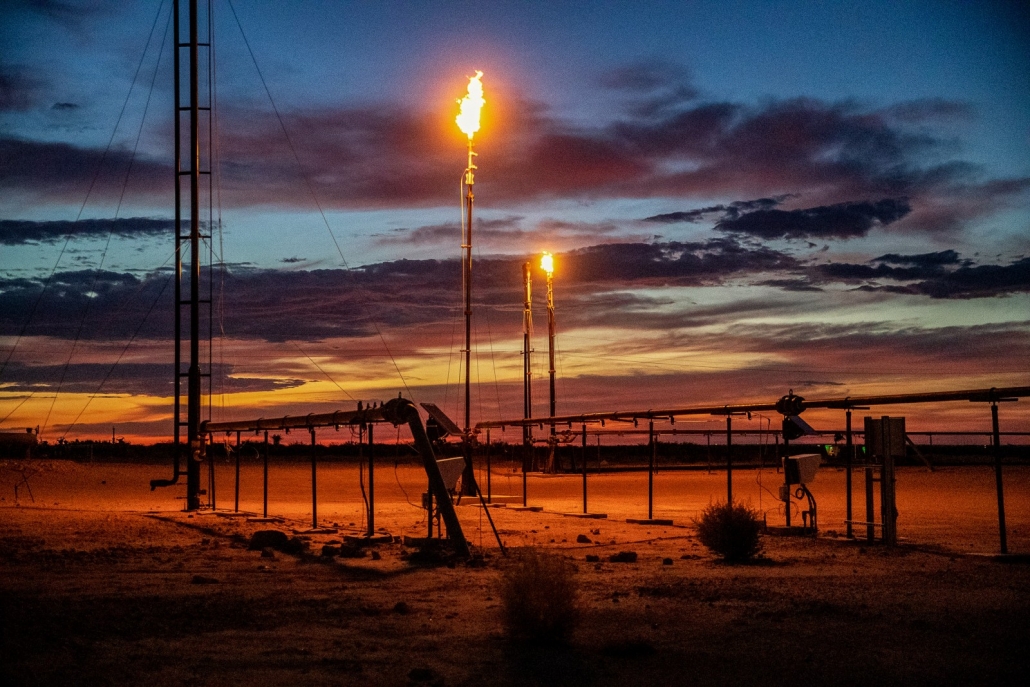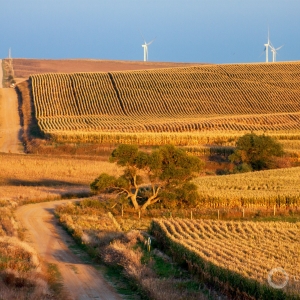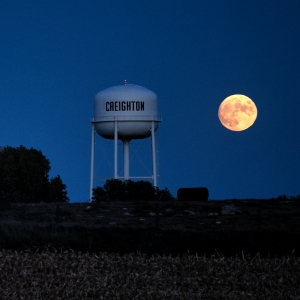The Stream, February 9, 2022: Texas’ Wastewater Problem

The annual $1.89 trillion Texas economy, the second largest state economy and ninth largest in the world, is entirely dependent on access to adequate supplies of water. Permian Basin oil and gas developments are among the state’s biggest industrial consumers of fresh water, and largest disposers of waste water. Photo © Brian Lehmann / Circle of Blue
YOUR GLOBAL RUNDOWN
- Wastewater from fracking is becoming a problem in Texas.
- A devastating storm wreaks havoc in Madagascar for the second time in less than a month.
- Water bills are expected to rise in England and Wales.
- Portugal is limiting the use of major reservoirs amid drought.
One First Nation in Canada is asking the city of Ottawa to take care of plastic pollution amid a decades long water advisory.
“We need to do better for our future generations.” – Charla Moonias, a 24-year-old Neskantaga member. Residents in Neskantaga, a remote northern Ontario First Nation, have been under a drinking water advisory for 27 years—the longest advisory of any First Nation in Canada. Canada’s capital city, Ottawa, sends weekly water shipments to the community but has never brought back the plastic bottles they deliver water in. Without waste pickup and recycling programs, garbage and plastic in the community typically ends up being incinerated or dropped off at a dump. Now, residents are asking officials to curb plastic waste in their community and other First Nations across the country.
In Recent Water News
In Case You Missed It:
Is Agrochemical Contamination Killing Nebraska’s Children? – The harrowing trail of toxic nutrients in farm country water.
What’s Up With Water—January 31, 2022 – This week’s episode covers an upgrade to Louisiana’s drinking water infrastructure and why insuring commodity crops in the U.S. is becoming more expensive.
What To Do About Texas’ Wastewater Problem?
Texas is running out of cheap option to dispose of toxic wastewater from fracking in the Permian basin. One method of disposal, injecting the water back underground, is causing earthquakes in an otherwise seismically inactive area. Amid mounting pressure to both reduce toxic wastewater and keep the region’s thriving oil and gas industry alive, some Texas lawmakers have proposed using some of the water for agricultural irrigation. Experts, however, warn treating the water will be expensive and potentially dangerous.
- In Context: Water use in much of the Permian basin is unregulated, Circle of Blue reported in 2020, and wastewater disposal permits are easy to obtain. Since fracking began in earnest in 2006, some 87,000 oil and gas wells have been permitted in the Texas Permian basin, according to state figures.
- More News From Texas: A massive winter storm swept across much of the United States late last week. In Texas on Friday, drivers found themselves trapped on Interstate 10 overnight after a deadly accident. More than 20,000 across the state lost power. Last year, a winter storm affected more than 1,100 water suppliers, raising questions about the state’s capacity to adapt to a changing climate.
Today’s Top Water Stories, Told In Numbers
20 PEOPLE
Cyclone Batsirai has left 20 people dead and displaced tens of thousands in Madagascar this week. The storm is the second to hit the storm in less than a month. Storm Ana battered parts of southeastern Africa in late January, killing 55 people in Madagascar.
£420 ($479)
Water bills in England and Wales are expected to rise an average of 1.7 percent by April of this year. The news comes days after an announcement that energy and gas bills are set to increase, a move that could plunge millions of homes into poverty. The Guardian reports that water bills could rise to an average of nearly £420 ($479) a year, while gas and electric could raise to an average of £1,977 ($2,257).
On the Radar
Portugal will restrict the use of some of its reservoirs at least until March due to ongoing drought, officials announced. Four dams producing electricity will be almost completely shut down and another will halt irrigation, according to the country’s Environment Minister.
More Big Stories
Indigenous groups in Ecuador are expressing outrage after more than 6,300 barrels of oil spilled into a protected area of the Amazon.
A retired environmental activist is working with water utilities to preserve chalk streams in England.
Beijing tapped into already-stressed water supplies and resettled hundreds of farmers and their families to produce the artificial snow needed to host the Winter Olympics.
A “new generation” of supposedly safer pesticides are being found in California streams at toxic levels, threatening aquatic life across the state.
Editor’s note: This post has been updated for clarity.
Jane is a Communications Associate for Circle of Blue. She writes The Stream and has covered domestic and international water issues for Circle of Blue. She is a recent graduate of Grand Valley State University, where she studied Multimedia Journalism and Women, Gender and Sexuality Studies. During her time at Grand Valley, she was the host of the Community Service Learning Center podcast Be the Change. Currently based in Grand Rapids, Michigan, Jane enjoys listening to music, reading and spending time outdoors.







Your story is incorrect in that First Nations are not asking the City of Ottawa to collect the empty water containers. They are asking the Canadian Federal Government which meets in the Capital City of Ottawa. There’s a difference.
Thanks, Andrea! The post has been updated for clarity.